In this episode we take you to Seville, Spain, to hear from OEGlobal’s new Executive Director, Andreia Inamorato, who is in her first few weeks of this role. Joining in from Vancouver, Canada, is outgoing Executive Director Paul Stacey who announced in February, 2022 his plan to transition out of the Executive Director role to that of an independent consultant.
This conversation is aimed at helping the OEG community get to know Andreia, her extensive background and interests in open education, Paul’s perspective on the last five years of his leadership role, and maybe a peek inside to what a day is like for a global organization leader.
Listen in for an informal conversation, a few laughs, singing, but more than that, to hear both Andreia and Paul share their perspectives on the role and potential for open education going forward into 2023.

Podcast: Play in new window | Download
References and Quotes for Episode 45
I think that open education is a compound of elements that we can choose what makes most sense to us at a particular time in a particular context. And it can range from a variety of things starting from perhaps a philosophy of openness as a value. I want to be an open educator. I want to live in a more open and democratic society, more inclusive.
And that means inclusiveness in all senses, lowering barriers to education, financial barriers for people who have some sort of physical challenges, accessibility. So it can be all that discourse around inclusion, but it could also mean other things like more access to knowledge overall in general for anyone, anyone who wants to upscale or re-skill, there are so many opportunities for everyone to engage of open education. There is not only one type of profile of person that can benefit from it. So I actually think that we don’t need to have a single description of open education. I think that rather we should really try and engage with the concept and try and understand how broad it is and then find ourselves within that.
Andreia Inamorato
- OEGlobal Board Announces Andreia Inamorato dos Santos as the OEGlobal Executive Director (OEGlobal News)
- Andreia Inamorato dos Santos (Andreia’s web site)
- Joint Research Center (European Commission)
And so for me, the global part of open education is a bit like that. It’s a bit like travel. You’re experiencing how a particular culture embraces the underlying principles and then enacts them, puts them into practice. I think that from an OE Global point of view, organizationally, I’ve always thought that in some ways we have the mandate to bring together the practitioners and the understandings of open education globally under one central organization, if you will that can help advocate and advance it no matter what part of the world you’re in.
Paul Stacey
And in some ways, Open Education Global looks for what is common, what’s similar about open education in all parts of the world. And let’s enable and help that flourish by bringing people together to exchange best practice and knowledge about it. But then on the other hand, we also have to acknowledge and support and foster the uniqueness of open education in particular parts of the world. And balancing both, enabling the kind of universal things about open education common at a global level while still acknowledging and embracing and supporting the unique diverse ways in which open education’s put into practice is a very interesting element of working at OE Global and I’ve certainly tried to make both happen.
- Starting Anew In The Landscape Of Open (Feb 8 2018, Paul Stacey blog)
- Open Education Global Board of Directors Announces Upcoming Transition for Executive Director, Paul Stacey (Feb 21, 2021, OEGlobal News)
- Next Steps (Oct 25, 2022, Paul Stacey blog)
I think of my role is more strategic than anything else. It’s really try and see the wonderful things that OE Global is already doing and how we can do even more by looking at the new strategic plan that has been developed and how we can tap into that a bit more and keep on doing what you’re doing well and reframing some other things and engaging more with members. So yes, there’s a lot about it that has to do with thinking, thinking time and taking the time to think strategically and engage with people.
Andreia Inamorato
- Open for Public Good (OEGlobal Strategic Plan)
I think that’s one of the things that we need to see is a recognition that open is not an add-on, but is a core, what I think of as an operating system. It’s not something that you add onto the side. It ought to be at the core of what you’re trying to accomplish, but that takes different strategy and different investment, and those are big system changes and sometimes those are the hardest to make. But I am seeing some inklings of that. I’ll say, here’s a few more, very short. I’ll make this short, but here’s a few more things that I think are on the radar screen and in new ways compared to say even when I started five years ago, open pedagogy for sure, I think is really a huge thing of major importance. And I’m looking forward and excited by the way that’s being embraced by faculty and students, especially students, and the involvement of them in producing, let’s call them, digital public goods that generate some benefit to society.
Paul Stacey
I think that social issues now are very important at the core of our political agenda.And through open education, we can help tackle them even by doing simple things as we’ve always done. When we create an open online course, not even necessarily a book, and just by making it available, we’re making knowledge available to people who really want to know from trusted sources such as schools, colleges, universities, so we can teach people more about a more sustainable society, financially speaking, climate wise, so and so forth. So I really think that if we engage further with the social aspects and try and make open education more relevant in terms of social challenges, we can even open new roots for action when it comes to openness in general. So it’s not only about government and teachers and students anymore, to me it’s now about citizens’ engagement as a whole, an opportunity.
Andreia Inamorato
And then I do think where there’s some uncertainty in my mind is around AI, in particular, artificial intelligence. And that’s been brought up once already in this podcast. I just wonder what the role of open is there. And clearly some of the early examples of AI have been treading on what might be thought of as the principles of open without really any repercussions. So that’s one that I’m actually personally investing in right now as I try to bring up my own learning and understanding about what the role of AI is.
Paul Stacey
As I said before, one needs to engage with the concept to truly understand it. So it would be great to understand and to hear from members and know members their barriers, but also their hopes and wishes, what they think is going really well, or anything that they think would be available for us to focus on that could really bring global value. So I think that listening to experiences in general from members would be fantastic, and I’m very open for that. In fact, Alan, I would really like to open up some space in my agenda as of the beginning of 2023 to have one-on-one conversations with members that are willing to, short conversations in the beginning for them to get to know me, for me to get to know them. And I think this will be a good opportunity for me to increase that knowledge in terms of the community.
Andreia Inamorato
There was much much more in this conversation (including some bonus content at the end of the show). As Andreia mentioned you can look forward in 2023 to taking up her invitation to schedule a one-on-one conversation with her. And Paul is not heading off to the sunset, his next steps continue his arc of focus on the public good and value co-creation via openness.
You can always be part of the ongoing conversations with Andreia, Paul, and our community in OEG Connect.
Our open licensed music for this episode is a track called Transition by Metre licensed under an Attribution-NonCommercial 4.0 International License found, like most of our intro music, in the Free Music Archive
The introduction created with the OEG Voices Mixer features voices of Rowena B, Judith S, Shannon S, Jonathan P, Kevin H, Lena P, Andreia I, Isla H-F, Alex E, Shinta H, Andy L, Paul S, Rajiv J, and Ajita D (learn how to add your voice to the mix).
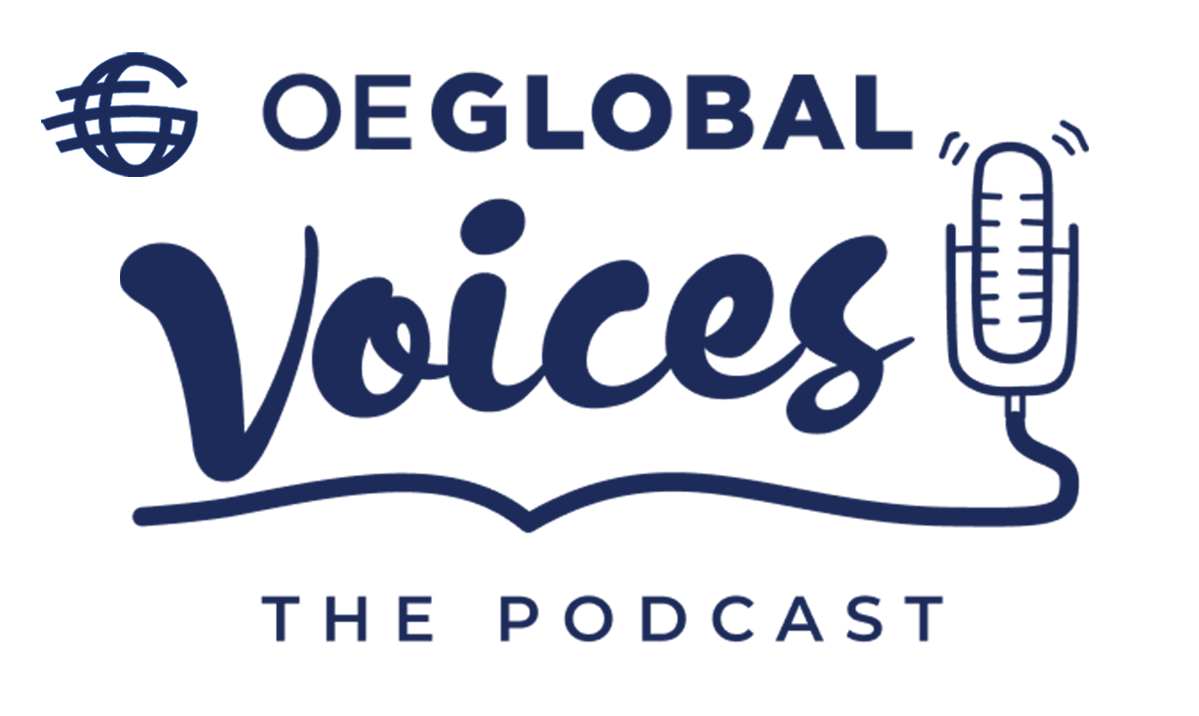
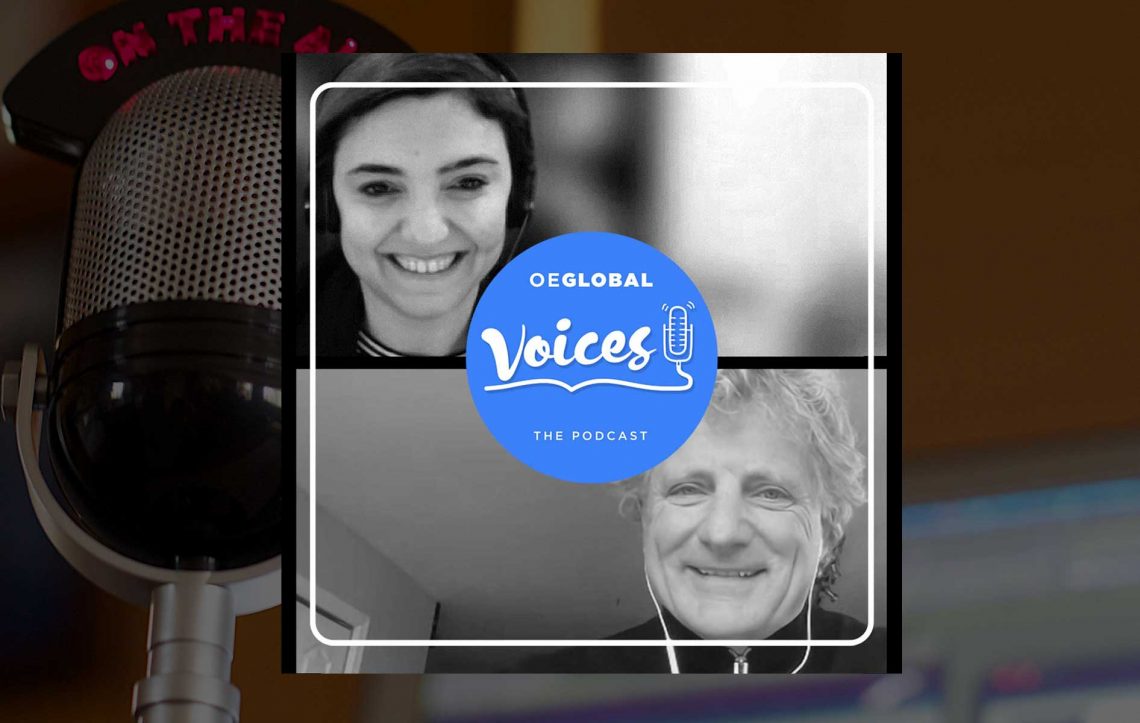
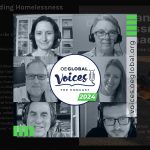
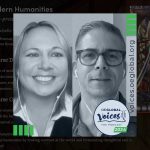
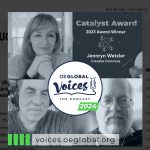
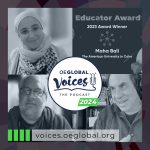
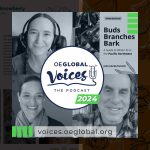
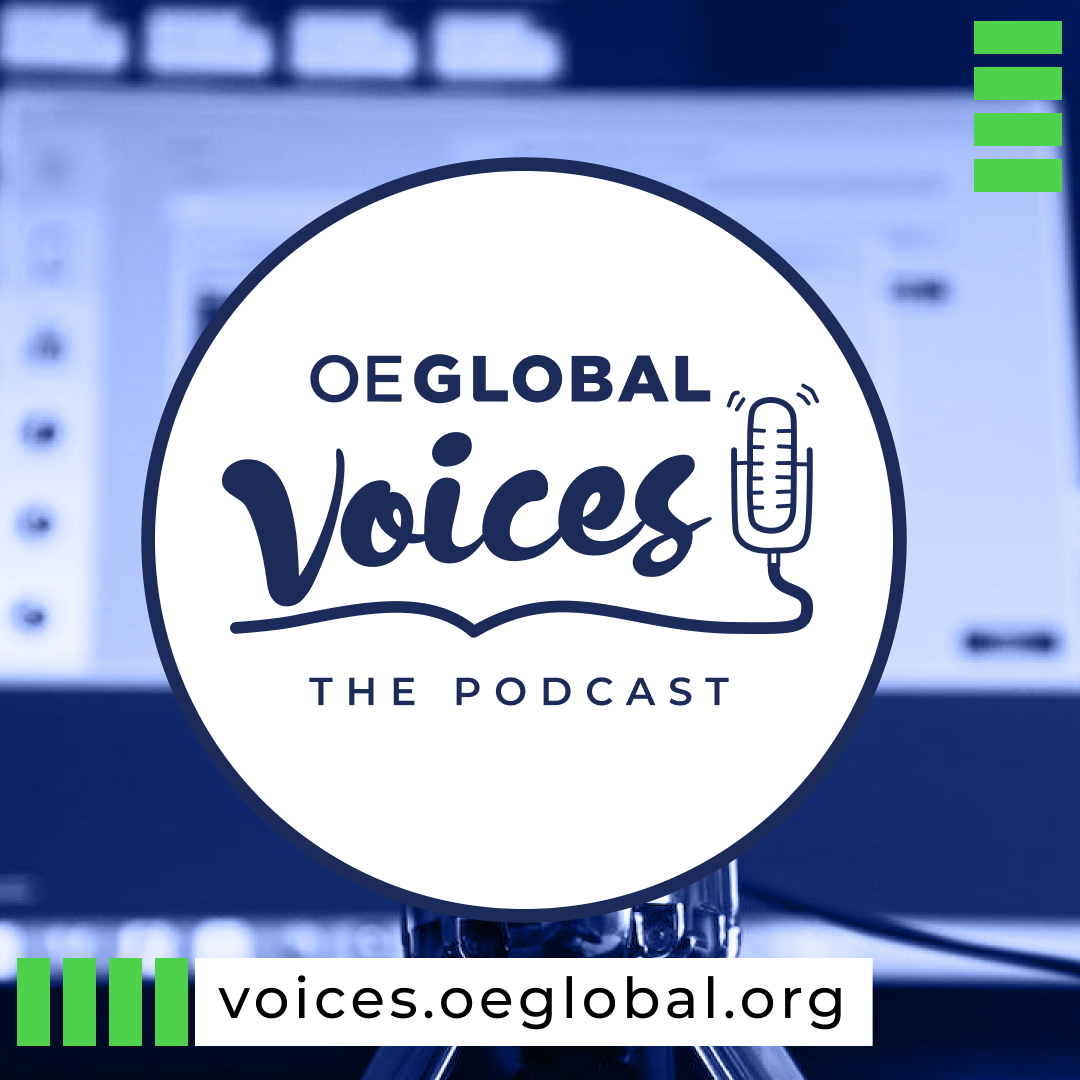
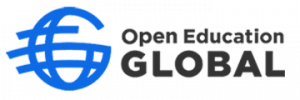
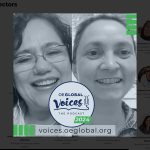

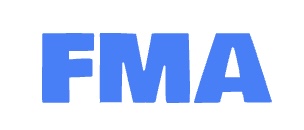
Okay OEG Connect Community… you have here a fabulous conversation between outgoing Executive Director @paulstacey and our new leader @Andreia
Here is where we hope you reply with some wishes/thanks for Paul and maybe som thing about the work you do and your open education interests to help inform Andreia. Or feel free to ask her questions about her experiences, or even what life in Seville is like.
While we wait for them to chime in, Paul and Andreia, how are you both feeling about this transition time? What are you eager, optimistic for in 2023?
The is open!
is open!
@cogdog Hi Alan, and all OEG members! It was very nice to record this podcast, where both Paul and I talk a little bit about ourselves and our perspectives on open education & OEGlobal. I would love to hear from our members what they think and their hopes for OEG in this transition time.